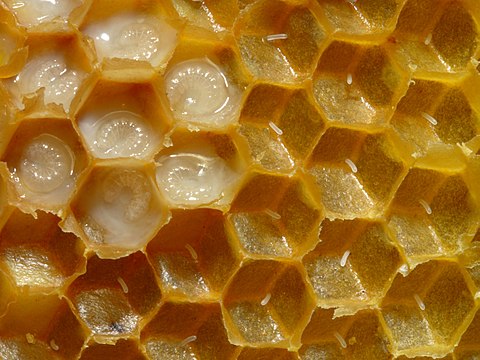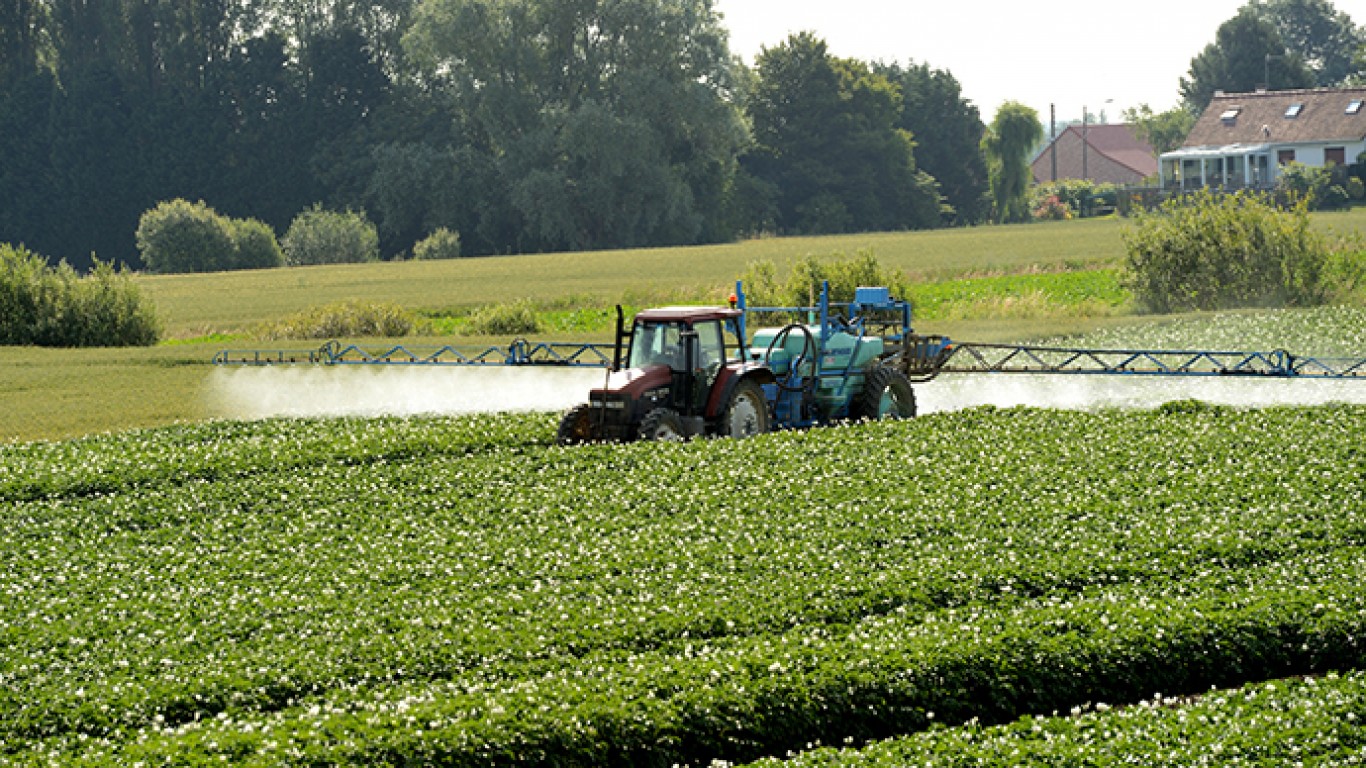 Abraham Lincoln
If given the truth, the people can be depended upon to meet any national crisis...
Abraham Lincoln
If given the truth, the people can be depended upon to meet any national crisis...
 Guildford news...
for Guildford people, brought to you by Guildford reporters - Guildford's own news service
Guildford news...
for Guildford people, brought to you by Guildford reporters - Guildford's own news service
Beekeeper’s Notes: Size Doesn’t Matter (Says Study Into Gardens)
Published on: 1 Feb, 2022
Updated on: 31 Jan, 2022
Hugh Coakley keeps bees in Worplesdon
January is another quiet month for beekeepers. The bees are all hunkered down with the cold weather. And, just as they have been doing for millions of years, they keep themselves going by living off their wonder food, honey.

Library image of honey bee eggs and developing larvae. The queen can lay up to 2,000 eggs in one day.
The queen should be gradually increasing her egg laying as the days lengthen. But every hive will be different; some will start to lay in December and stop for a while and then recommence. Others will be laying steadily from now on.
Logically, I think it probably depends on many factors including how many bees are available to nurse the larvae and how much honey they have stored to keep the show on the road. It is pointless for the queen in a tiny colony to lay loads of eggs which the nurse bees cannot prepare for or feed.
Some good news and some bad news.
First the good news. A study in Bristol concluded small gardens were as important as big gardens for conserving bees and other pollinators. A small but well managed garden, particularly one with shrubs, typically produces more food and nectar for the insects than a larger plot. I think that is great news for gardeners and it shows, I have to say it, size doesn’t matter.
Now the bad news.
The government has allowed what has been called emergency use of a product containing a neonicitinoid called thiamethoxam in England because of a virus which affects sugar beets.
We know these chemicals are bad for insects and bees and apparently, the decision was made against despite expert advisers saying pollution from the pesticide would damage river life and requirements for the emergency use had not been met.
The minister, George Eustace, pressed on though and said he wanted to minimise risks to bees and banned farmers from growing flowering plants for 32 months after the sugar beet crop.
But he admitted it was not possible to “rule out completely a degree of risk to bees”.
What will our children think of us. Insects are disappearing at an alarming rate and yet we are still using these nuclear pesticides.
Recent Articles
- Guildford Institute’s Crowdfunding Project for Accessible Toilet in its New Community and Wellbeing Centre
- Letter: Guildford – Another Opportunity Missed?
- Letter: GBC’s Corporate Strategy – Where Is the Ambition?
- My Memories of John Mayall at a Ground-breaking Gig in Guildford Nearly Six Decades Ago
- Westborough HMO Plans ‘Losing the Heart of the Street’ Says Resident
- College Invests to Boost Surrey’s Economy and Close Digital Skills Gap
- Community Lottery Brings Big Wins for Local Charities
- GBC Housing Plan Promises ‘A Vibrant Urban Neighbourhood’ Near Town Centre
- Hospital Pillows ‘Shortage’ at the Royal Surrey
- Updated: Caravans Set Up Camp at Ash Manor School


Search in Site
Media Gallery
Dragon Interview: Local Artist Leaves Her Mark At One of England’s Most Historic Buildings
January 21, 2023 / No Comment / Read MoreDragon Interview: Lib Dem Planning Chair: ‘Current Policy Doesn’t Work for Local People’
January 19, 2023 / No Comment / Read MoreA3 Tunnel in Guildford ‘Necessary’ for New Homes, Says Guildford’s MP
January 10, 2023 / No Comment / Read More‘Madness’ for London Road Scheme to Go Ahead Against ‘Huge Opposition’, Says SCC Leader
January 6, 2023 / No Comment / Read MoreCouncillor’s Son Starts Campaign for More Consultation on North Street Plan
December 30, 2022 / No Comment / Read MoreCounty Council Climbs Down Over London Road Works – Further ‘Engagement’ Period Announced
December 14, 2022 / No Comment / Read MoreDragon Interview: GBC Reaction to the Government’s Expected Decision to Relax Housing Targets
December 7, 2022 / No Comment / Read MoreHow Can Our Town Centre Businesses Recover? Watch the Shop Front Debate
May 18, 2020 / No Comment / Read More










Recent Comments